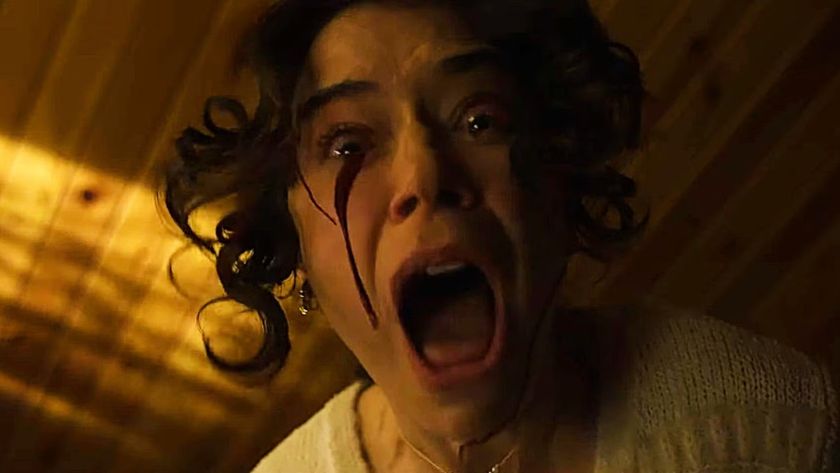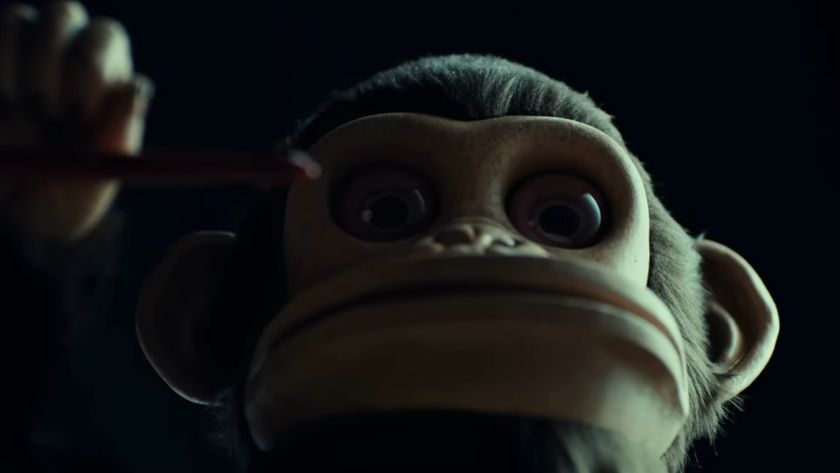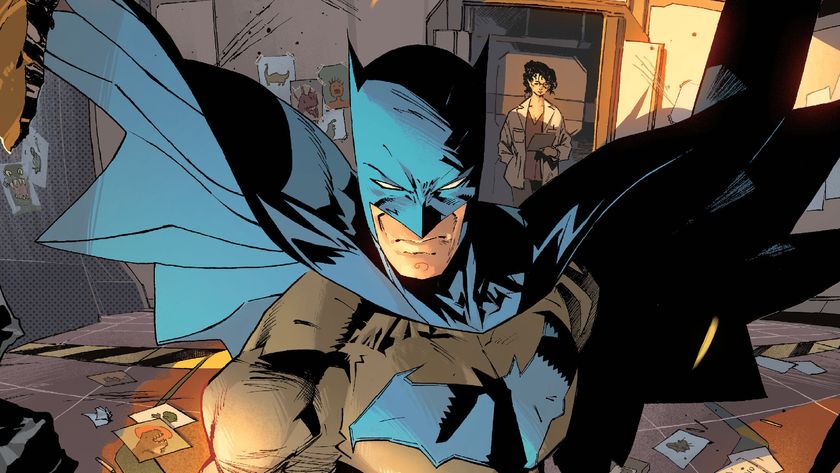Philip Seymour Hoffman: 10 Essential Performances
The master of his craft
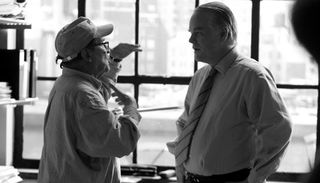
Before The Devil Knows You're Dead (2007)
Hoffman's drug-abusing businessman who plots to rob his own parents' jewelry store is a masterclass in onscreen desperation - as the plan spirals out of control, so does Hoffman's Andy Hanson.
Hoffman produced a truly unforgettable performance, painting the picture of a man struggling against the most soul-wrenching of addictions.
Devil was Sidney Lumet's final film, Hoffman makes it one of his best.
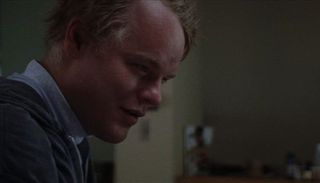
Magnolia (1999)
Until Magnolia , Hoffman had spent most of his career playing bullies, schemers and outcasts. When his long-time collaborator Paul Thomas Anderson cast him at / as the heart of his sprawling epic, it was a turning point for his career.
Arguably the best thing in a film full of great things, Hoffman's pure sweetness in Magnolia is mesmerising.
Says Paul Thomas Anderson: "I wrote the character of the saintly nurse Phil Parma in Magnolia for Phil. Phil is that good - he’s committed to art and not in a phony, grandstanding way. He really wants to live a life in the arts that means something.”
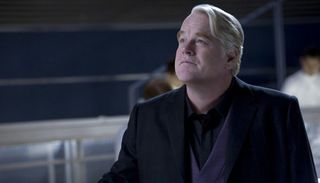
The Hunger Games: Catching Fire (2013)
Possibly playing on Hoffman's potential to be typecast as a blockbuster villain (following Mission Impossible 3 and the general trend for thespians who move into the multiplex), his casting as Plutarch Heavensbee was a stroke of genius.
Despite the fact he played both sides of the character with equal brilliance, Hoffman was even more convincing after the third-act revelation. Possibly because it was more of a representation of his true nature.
It might seem strange to include this one on a list of such cinematic greats, but then again, every Hoffman performance was memorable - as a representation of his ability to shine in the mainstream as much as indie roles, this performance is just as essential as everything else here.
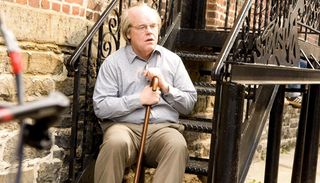
Synecdoche, New York (2008)
Not many actors can pull off a portrayal of a lifetime played out onscreen, but we follow Hoffman's Caden Cotard from his 30s, through to old age, and his eventual death with fascination.
He is our guide through an infinitely complex story, which explores philosophical, psychological and postmodern concepts via a meta-referential plot about a theatre director whose commitment to realism leads to some pretty extreme surrealism.
We're not sure if any other actor could've managed this one, and it remains a shining highlight on Hoffman's impressive CV.

Almost Famous (2000)
He's hardly in it, but the fact that his portrayal of legendary rock journalist Lester Bangs is the first thing you remember when you think of the film is a testament to Hoffman's onscreen power.
Contradicting his most quotable line in the movie ("I'm always home, I'm uncool."), his Bangs is the very definition of cinematic cool.
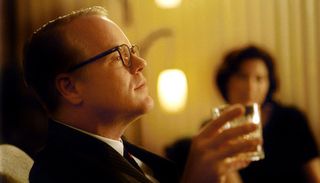
Capote (2005)
Hoffman was nominated for four Oscars - three for Best Supporting Actor and once for Best Actor - winning the latter for this incredible performance as the writer Truman Capote.
Virtually unrecognizable, Hoffman transformed his imposing frame (seemingly shrinking both his weight and height) into the slight figure of the In Cold Blood scribe.
He dedicated his Oscar win to his mother, with these moving words. "She's here tonight; I'd like you if you see her to congratulate her," he said.
"She brought up four kids alone, and she deserves congratulations for that. … She took me to my first play and she stayed up with me and watched the NCAA Final Four. Her passions became my passions.
Be proud, mom, because I'm proud of you. We're here tonight. It's so good."

Boogie Nights (1997)
Watching Hoffman in Boogie Nights is an uncomfortable experience. Everything, from his too-tight t-shirts, to his hunched posture to his needy giggle is designed to make you squirm in your seat.
And yet, from underneath it all, shines the radiance of pure love - the love his Scotty J feels for Mark Wahlberg's Eddie Adams (otherwise known as Dirk Diggler).
It's that love (demonstrated mainly through glimpses and glances) that allows us to feel sympathy for what could potentially be a pretty creepy character.
It's a background performance that comes to the foreground with every viewing of the film.
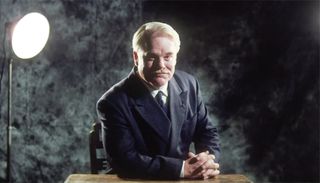
The Master (2012)
Another Oscar-nomination came for Hoffman's fifth (and sadly, final) collaboration with Paul Thomas Anderson, and it's arguably the best of the bunch.
It would be so easy to reduce this veiled satire of Scientology founder L. Ron Hubbard to a caricature, but Hoffman makes us care about his Lancaster Dodd, via a layered performance which encompasses some fairly aberrant behavior, but is never anything less than likable.
Featuring at least two scenes - the processing scene, the end sequence - that are amongst the best of his career, if you haven't caught The Master yet, take it to the top of your list.
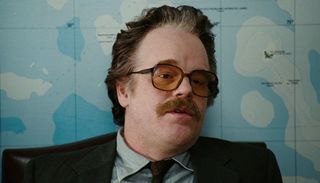
Charlie Wilson's War (2007)
It might be called Charlie Wilson's War , but this is Philip Seymour Hoffman's film. He steals it from under the feet of the titular Tom Hanks, with his foul-mouthed CIA agent being the most memorable element of the film.
He was Oscar-nominated for it, and rightly so.
His director, Mike Nichols, said of Hoffman: "Last year, he did three films - The Savages, Charlie Wilson’s War and Before the Devil Knows You’re Dead - and in each one he was a distinct and entirely different human. It’s that humanity that is so striking - when you watch Phil work, his entire constitution seems to change. He may look like Phil, but there’s something different in his eyes. And that means he’s reconstituted himself from within, willfully rearranging his molecules to become another human being.”
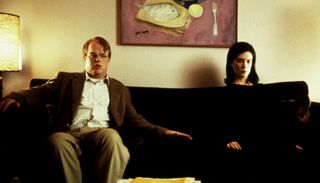
Happiness (1998)
Philip Seymour Hoffman's career was packed with risky performances constructed almost entirely from soul-baring moments that required the utmost bravery from the actor.
Perhaps none more-so than his turn in Happiness . As Hoffman himself said: “That wasn’t easy. It’s hard to sit in your boxers and jerk off in front of people for three hours. I was pretty heavy, and I was afraid that people would laugh at me. Todd said they might laugh, but they won’t laugh at you. He saw what we were working for, which was the pathos of the moment. Sometimes, acting is a really private thing that you do for the world.”
Sam Ashurst is a London-based film maker, journalist, and podcast host. He's the director of Frankenstein's Creature, A Little More Flesh + A Little More Flesh 2, and co-hosts the Arrow Podcast. His words have appeared on HuffPost, MSN, The Independent, Yahoo, Cosmopolitan, and many more, as well as of course for us here at 12DOVE.
Most Popular






